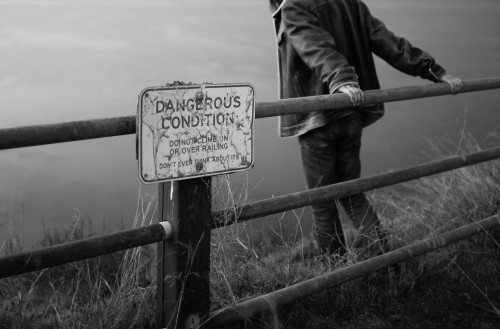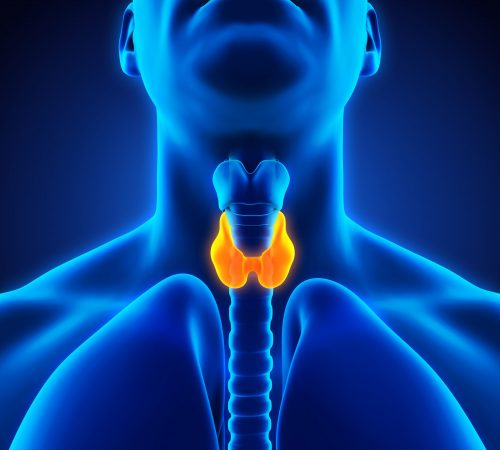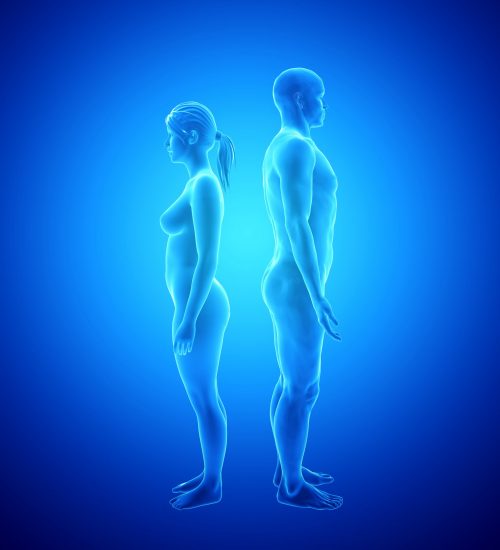Always Look on the Bright Side of Life… Life’s a Laugh and Death’s a Joke, It’s True

What makes a good doctor? You need to be caring, non-judgemental, intelligent, honest, open, respectful, fair, humane and empathetic. What makes medicine special is the unique connection you have with your patient, there is a level of trust and intimacy between you that is normally reserved only for your closest and dearest. The doctor-patient relationship is sacred. You can read all the books you want, but they won’t provide you with the necessary life skills to deal with the situations you will encounter. How you deal with those situations defines you as a doctor. Unless you’ve been to the edge, experienced the exhilarating highs and surfaced from the dark lows, how can you even pretend to understand what your patient might be going through? Doctors need that connection almost as much as their patients, why else would we do it? There are far easier ways to earn more money with less attached stress than medicine.
I’d like to think I’m pretty well-balanced and well-adjusted. I’m not mind, but hopefully I’m on top of this game enough to continue playing to the final whistle. I’ve made mistakes along the way, I’ve done things I probably shouldn’t air in the public domain and I’m not ruling out making a few more. What’s important is that I’ve learned from my experiences, and have hopefully come out the other side a better, stronger person, which by proxy, hopefully makes me a better doctor.
Humour is essential. It doesn’t have to be a good sense of humour, it just has to be a resilient, fluid one. Medicine can be pretty heavy going at times. Not just because of the sheer volume of information you need to take on board, process and decipher before strategizing a management plan, but because you are dealing with people’s lives. People are often scared, anxious, depressed, angry… name a negative emotion and you’ll be on point. Often, it’s the worst day of their lives. The tenth sore throat of the day may seem trivial to you, but it’s important to the patient, otherwise they wouldn’t be sat in front of you. Our job is to hopefully remove or lessen that angst, and reassure them. Sometimes they are happy and you can share that joy, you can see the relief on their faces when you say you are discharged or you are cured. You need to savour those moments and take comfort from them, because they are few and far between.
Last Sunday I held a frail, elderly lady’s hand as she took her last breaths. Nobody should die alone, it wasn’t my job to do that, I’d done my ‘doctor’ bit, but I could see that she only had moments left, it was the humane thing to do, provide human touch, perhaps a little comfort that wasn’t there before. It was a special moment, a moment I have reflected on. It’s not something I will or should forget as it has significance. The thing is, I have hundreds of these moments, and unless you have a mechanism for coping with them, they will consume you. Humour is something you need, it helps provide balance in an otherwise difficult time. It also needs to be dark, twisted and macabre at times to cope with what is thrown at you.
There is a reason for doctors having one of the highest suicide, divorce, drug addiction, alcoholism rates amongst professionals. You are dealing with life and death, and it’s sometimes hard to find that all important balance necessary for emotional health.
The junior doctor years are tough, but they’re also fun. ‘The House Of God’ was the house officer’s bible back in the day. It is a brilliant satirical insight into the pre-registration year. The year you entered the hospital as a ‘real’ doctor, still wet behind the ears, the year you realised you still knew nothing, the year you realised the junior doctors before you had warned you about. You were told “Don’t do it” on medical school open days up and down the country. Like an idiot, you didn’t listen, your resolve is too strong, your drive and determination would see you through.
“The only good admission is a dead admission” – The House Of God
You are a product of your environment. You take in your surroundings and often learn valuable lessons through a sort of osmosis by just being there on the ward, lessons you can’t learn from reading a text book. We all make mistakes, it’s part of the learning process. As a medical student on placement, I’ve mistaken psychiatric patients for staff and staff for patients. The wards used to be filled with acrid smoke, patients smoked, staff smoked. What the hell is normal anyway? Who wants to be normal?
As for other disciplines, most surgeons are self-proclaimed narcissists with a God complex. I’ve seen surgeons throw tantrums that toddlers would be proud of! One used to throw his instruments about the operating room if things weren’t going exactly how he’d planned. Another once dropped to the floor in the middle of CCU, raised his hands to the ceiling and cried “Why won’t somebody help me?!” How some of them survive in the real world dumbfounds me. One of my favourite speeches which illustrates my point brilliantly, is from the film Malice…
“Go ahead and read your bible Dennis… if you’re looking for God, he was in operating room number two on November 17, and he doesn’t like to be second guessed. You ask me if I have a God complex. Let me tell you something: I am God.”
Physicians and GPs are on the whole, pretty well balanced people. To be fair, the bar isn’t set very high. You see, most doctors grow up from very privileged backgrounds, their normal, it pretty abnormal. I grew up in a healthy, stable nuclear family, went to public school, played sports, went on yearly ski trips. I was spoiled (and Lydia says mollycoddled!), but hopefully not spoilt. As a child, I was sheltered from the harshness and cruelty this world can throw at you. I was acutely aware of it, just protected.
You need an escape, and as mentioned earlier, humour is a must. I have so many stories from medical school, so many that I should probably write a book. From the guy who asked the surgical consultant, moments prior to conducting major abdominal surgery, if he could “skin up” rather than “scrub up”. Not sure what he’s up to now, he was thrown off the course for dealing MDMA. To my friend who is now a well-respected consultant, whilst in Breast Clinic he asked the women to “take big breasts” rather than “big breaths”. Confident he was, some might say over-confident, but when an examiner asks you “are you sure?”, you should probably take a moment to reflect on your answer, rather than reply “that’s what I said!”
Accident & Emergency was always great fun, it was high paced environment where emotions ran high. It was a pressure cooker, ready to boil over at a moment’s notice. From cuts and scrapes, to major trauma and cardiac arrests, you needed to be on your game at all times because you never knew when the bat phone was going to ring and something serious would soon be entering through those doors.
A&E was hard, it’s a war of attrition, especially as a Junior Doctor. You are constantly changing shift patterns, constantly tired, your body clock is all over the place. Your social life is non-existent, you are too tired to do anything other than work, being sociable is impossible due to your work schedule. It wouldn’t be considered abnormal to break the seal at 8am when you got home. We are not all raging alcoholics, it’s just going home and going straight to bed would mean work had won. Alcohol was a way of unwinding, but it was also a symbol of defiance, work had not defeated you.
I remember coming home after an emotionally charged shift, I’d dealt with a couple of cardiac arrests, a major trauma and a guy who’d tried to kill himself by setting light to himself after dousing himself in petrol. He kept telling me he didn’t deserve my help and that I should go deal with someone else. Nights like this are not unusual, this is one of many accounts I could tell, but this one is for the purpose of the story. Cardiac arrests are dull. Don’t get me wrong, they’re significant, but once you’ve done a few there’s no excitement in dealing with another one, it’s rare to ever get the patient back. As junior doctors, we’d draw straws to decide who would deal with the next one, the winner would escape the drudgery of “Nelly the elephant”. In stark contrast, trauma was always fun, blood and guts, the definitive decisions and actions you took were often life and death ones. It was dehumanising though, it had to be, otherwise you’d be a quivering wreck. It’s the reason I didn’t become a surgeon, I didn’t like the fact I saw the condition and not the person in front of me.
You have to have healthy coping mechanisms, otherwise the things you see and do will destroy you. I once saw a guy who had a massive laceration on his forearm from cutting himself with a knife. I sutured him up and I did a pretty good job, even if I say so myself. I tried to convince him to see our psychiatrist but he declined, he wasn’t sectionable so I agreed to let him go home if he made a pact with me to come back the next day and see me to get his wound checked. It would be a perfect opportunity to work on him some more and reassess his mental status. I came into work the next evening to hear he’d hung himself in the woods upon leaving the department. How do you process that? Was it partly my fault? Could or should I have done something more, something different? I thought I’d gotten through to him, I was reasonably happy I’d done the right thing when he left the department before taking the next patient in. I wasn’t offered any support or counselling, I just picked up the next set of patient notes and got on with it.
I’d have rejected counselling obviously, why would I want to talk about my feelings with a stranger? I’d like to know what I could have done differently to have potentially prevented him from killing himself, but to talk about my feelings? No, you’re alright, I had a hot blonde waiting for me at home, her name was Chardonnay and she never let me down or talked back.
Before you get the violins out, there’s a lot of humour that goes along with the heartache. So many faux pas. From the Surgical Registrar who crossed his own fingers, looked down at the patient’s hand who had two fingers missing from a chainsaw accident and said “Fingers crossed we’ll be able to sew them back on”. To the Student Nurse who told the frail elderly man who’d tripped over the hearth landing head first in the open fire burning his scalp “You should have used a poker”. I’ve said wholly inappropriate things, too many times to list them all. I’ve dealt with enough faeces, urine, vomit, blood and pus to last a lifetime, nothing turns my stomach, nothing puts me off my food. So when a patient was too embarrassed to remove her knickers because they were soiled, I tried to put her at ease by pointing at the nurse and saying “Don’t worry, Suzie always comes to work wearing dirty knickers”. Inappropriate yes, unprofessional yes, but it did put the patient at ease, perhaps you had to be there?
It’s sometimes difficult to keep a straight face, when asked “What makes the pain worse?”, it’s not every day you get the answer “Doggy-style”. I’ve walked in on a patient, clearly still high as a kite, bobbing their head to the beeping noise of the pulse oximeter. The silhouette of the dildo and the two AA batteries on the abdominal x-ray is always good for a laugh, the poor person hearing the whole department erupt with laughter may not agree, but “falling” on to a 10” dildo takes a special type of someone. I once asked a guy who came in with the lid of an aerosol can stuck up his butt why he chose that end to stick up?
I do have a corker of a faux pas. Let me paint the scene first so you appreciate that my internal filter was running on empty. It was night seven of seven, I had an hour to go, a twenty minute drive and I’d be cracking open that bottle of plonk and pressing play on the VCR to watch a movie, before deservedly passing out from a combination of extreme tiredness and drunkenness. So, I was close, 60 short minutes, tick tock, tick tock, I’d gone through the witching hour, I was on the home stretch. The bat phone rang and whatever little adrenaline I had left fired into action. Sister answered, they wanted to speak to me. I got on well with the Paramedics, I was on their wavelength, they wanted me to pronounce their patient in the ambulance rather than bring him in and work on him which would be futile. So I jumped in the back of the ambulance, the patient was motionless, pale & cold. He was covered in old blood from a massive haematemesis and according to the Paramedics, he’d been down about 50 minutes. Yep, he was long gone, job done. Back in the department, the Sister taps me on the shoulder and asked if I’d mind speaking to the relatives. No problem, quick in out, give them the usual spiel and count down the remaining minutes, not enough time to see another patient, Chardonnay here I come.
Obviously you introduce yourself and open with “Sorry for your loss…” then normally describe the circumstances, and then the rationale for the decision to stop. I was on autopilot, then this happened…
“By the time he arrived at the hospital, he’d already been down 50 minutes and there’s no point flogging a dead horse…”
What did I just say? There’s no point flogging a dead horse?! Yep, I’m pretty sure that’s what I said… Oh shit, oh shit, just keep talking, keep composed, they’re still listening to my every word. I finished my condolences, turned to the Sister and advised I’d leave them in her hands and said my farewell. I could be in trouble for that one… Tired, delirious, hysterical, I recounted the story to the other nurses who were now rolling around in hysterics. My head on the table, Sister comes over and says “The son said “Poor choice of words, but we got what he meant.”” Chardonnay, where are you? I need you now!
We are all human, we thrive on balance, but normal is boring, nobody remembers normal. Greatness doesn’t come from normality, it comes from experiencing the extremes and remaining composed giving the illusion of normality!
Dr. Robert D Stevens MBChB MRCGP Dip.FIPT


